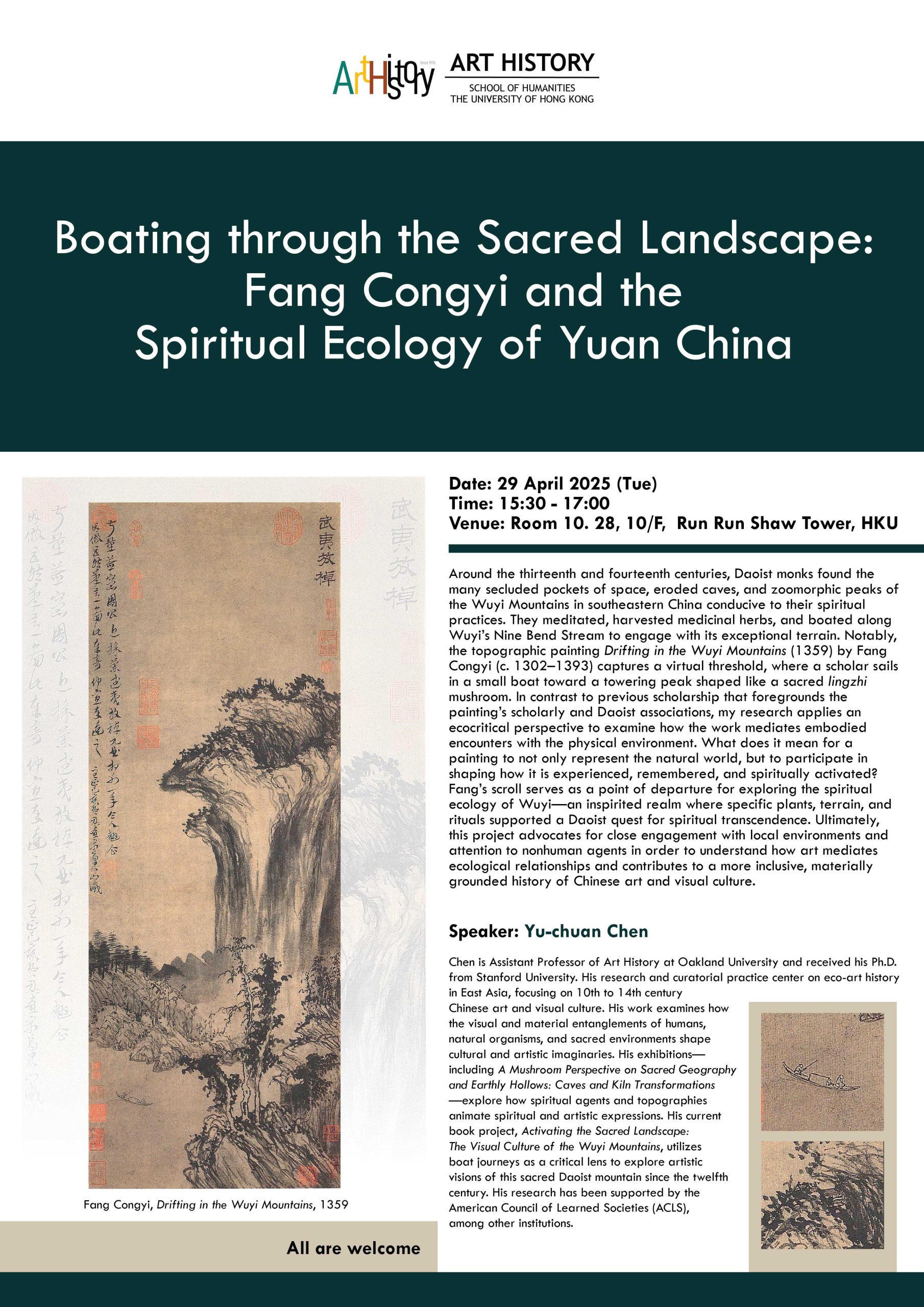

Boating through the Sacred Landscape
April 29 @ 3:30 pm - 5:00 pm
Boating through the Sacred Landscape: Fang Congyi and the Spiritual Ecology of Yuan China
Around the thirteenth and fourteenth centuries, Daoist monks found the many secluded pockets of space, eroded caves, and zoomorphic peaks of the Wuyi Mountains in southeastern China conducive to their spiritual practices. They meditated, harvested medicinal herbs, and boated along Wuyi’s Nine Bend Stream to engage with its exceptional terrain. Notably, the topographic painting Drifting in the Wuyi Mountains (1359) by Fang Congyi (c. 1302–1393) captures a virtual threshold, where a scholar sails in a small boat toward a towering peak shaped like a sacred lingzhi mushroom. In contrast to previous scholarship that foregrounds the painting’s scholarly and Daoist associations, my research applies an ecocritical perspective to examine how the work mediates embodied encounters with the physical environment. What does it mean for a painting to not only represent the natural world, but to participate in shaping how it is experienced, remembered, and spiritually activated? Fang’s scroll serves as a point of departure for exploring the spiritual ecology of Wuyi—an inspirited realm where specific plants, terrain, and rituals supported a Daoist quest for spiritual transcendence. Ultimately, this project advocates for close engagement with local environments and attention to nonhuman agents in order to understand how art mediates ecological relationships and contributes to a more inclusive, materially grounded history of Chinese art and visual culture.
Date: 29th April 2025 (Tuesday)
Time: 3:30-5pm
Venue: Room 10.28, 10/f, Run Run Shaw Tower, HKU
Free seating
Speaker: Yu-chuan Chen
Yu-chuan Chen is Assistant Professor of Art History at Oakland University and received his Ph.D. from Stanford University. His research and curatorial practice center on eco-art history in East Asia, focusing on 10th to 14th century Chinese art and visual culture. His work examines how the visual and material entanglements of humans, natural organisms, and sacred environments shape cultural and artistic imaginaries. His exhibitions—including A Mushroom Perspective on Sacred Geography and Earthly Hollows: Caves and Kiln Transformations—explore how spiritual agents and topographies animate spiritual and artistic expressions. His current book project, Activating the Sacred Landscape: The Visual Culture of the Wuyi Mountains, utilizes boat journeys as a critical lens to explore artistic visions of this sacred Daoist mountain since the twelfth century. His research has been supported by the American Council of Learned Societies (ACLS), among other institutions.



Find us on…